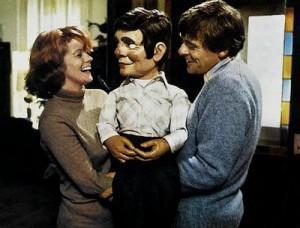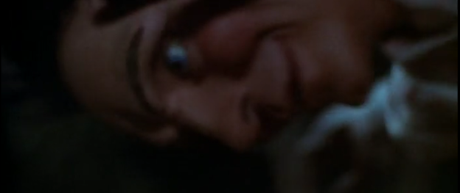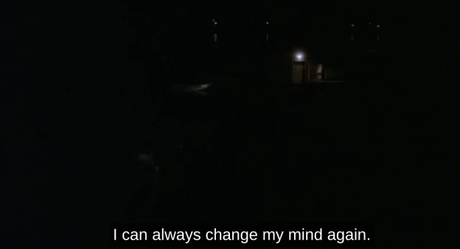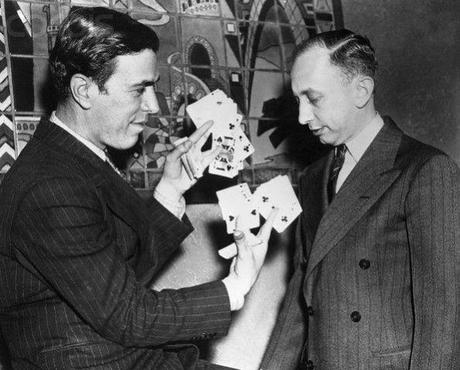"If you had told me, that 1978 November day when Magic opened, that it would be nine years before my next picture appeared, I doubt I would have known what language you were speaking."
To say screenwriting legend William Goldman was on a hot streak in 1978 would be like saying Donald Trump loves Twitter. It's just such an understatement. Between '73 and '78, Goldman penned three books ( Princess Bride, Marathon Man, Magic) and had six screenplays turned into movies ( Great Waldo Pepper, The Stepford Wives, All the President's Men, Marathon Man, A Bridge Too Far, and Magic, adapted from his own novel). Understandably, the notion of failure wasn't on his radar, as he admitted in the Which Lie Did I Tell?: More Adventures in the Screen Trade quote I opened with.
However, fail he did with Magic, a film with a silly premise but deadly serious execution.
It involves a shy Catskills-trained magician named Corky (a miscast, but still impressive Anthony Hopkins) who turns his career around by adding a ventriloquist dummy named Fats to his act. The audience watches Fats and laughs at his bawdy jokes and old-timey nicknames, like "Schmucko," distracting them from ever noticing exactly how Corky is doing all of his tricks. It works like a charm. On his own, as seen in a heartbreakingly real opening sequence, Corky is too awkward for words; with the doll, he makes for a great comedy duo.
With the immense help from his soft-spoken, cigar-chomping agent (Burgess Meredith in surprisingly understated form), Corky manages to step right up to the edge of maybe landing his own network TV series. Spooked by the prospect and pressures of wild success, he retreats to his hometown to reminisce and maybe check in on an old crush (a better-than-the-script Ann-Margret).

Then he starts killing people.
As you do.
It's a plot lifted from the likes of 1945's British horror anthology Dead of Night, old Twilight Zone episodes, and the back pages of Tales from the Crypt. It's since been repeated through the various iterations of Goosebumps. However, the twist in those stories is far more obvious. You've got a man putting his hand up a doll's back and pretending to carry on conversations with it by throwing his voice. But what if the doll's secretly alive? Ah, supernatural shenanigans!
Magic's take on the familiar tale is far more psychological. Goldman's story is about a nascent serial killer channeling his psychosis through his doll, to the point that he when he finally snaps he seems to forget that he and the doll are one in the same. The alternating evil harmonica/lush orchestra musical score from Jerry Goldsmith speaks to this division quite beautifully. There's a good reason Bloody-Disgusting ranked this as one of the 10 most underrated horror scores.
Upon the film's release, Time's Frank Rich tore it apart in his review, arguing of Hopkins "he cannot even begin to pass for the New York-bred, borscht-circuit entertainer Magic claims him to be." He's...
Well, he's not wrong. Try as the film might, Hopkins never quite passes for a character with his background. However, as a painfully shy man slowly losing himself to his own creation Hopkins' turn could hardly be any better. The gradual switch from "Ah, he clearly uses the doll as an icebreaker and social crutch" to "Oh, shit, he thinks that doll's real! And all it ever does it insult him" is a triumph of acting. It results in easily the finest moment of the entire film, when Corky's agent walks in on all the crazy he's been hiding away from everyone:
Director Richard "Yes, the Old Guy from Jurassic Park" Attenborough (re-teaming with Goldman and producer Joseph Levine after A Bridge Too Far) seems an odd fit for the material, and at times one wishes he'd had a bit more fun with the material. But, when the violence finally comes he doesn't shy away from it. Plus, the perfectly framed sight of Corky struggling to even go three full minutes without speaking through Fats is as tense a sequence as you can hope to find in what is essentially a B movie posing as a prestige picture.
Sadly, the film's ending proves to be a disappointment. As Goldman self-effacingly admitted, "Endings in thrillers particularly brutal. At least they have been for me. If you read any of my thrillers ( Marathon Man, No Way to Treat a Lady, Magic), chances are, if you remember them at all, it's not for the way they concluded."
So, no, you won't walk away talking about the ending. However, for those doubting Anthony Hopkins bonafides as one of the finest actors alive, particularly considering his more paycheck-inspired existence as of late, one need look no further than Magic for an example of the man in his prime.
POINTS FOR: ANTHONY HOPKINS, BURGESS MEREDITH, THE DEATH SCENES, UNDERRATED JERRY GOLDSMITH SCORE

One of the finest "ventriloquist dummy used to bludgeon someone to death" scenes you could ever hope to see, even the ludicrous of it all might make you laugh more than the film wants you to.
POINTS AGAINST: TOO SLOW, SEXISM!

Ann-Margret gives a surprising warmth to her cliched bored/frustrated housewife character, but the script forces some real sexist, "Don't ask me. I'm just a girl"-style clunkers on her. Hell, literally her second-to-last line of the film is "I'm warning you, Cork, don't play hard to get, I'm a woman, I can always change my mind again."
RANDOM PARTING TRIVIA:
- Goldman drew partial inspiration from the historical story of John Scarne, an early 1900s card trick magician who taught himself how to cut the ace of spades in a deck of cards at will. When he performed this "trick" for a prohibition gangster and then refused to show him how he did it he almost paid for that refusal with his life. This story so impressed Goldman he incorporated it into not just Magic (Hopkins deviously uses the trick to bed Margret) but also Maverick nearly 20 years later.
- "The lesson I was about to learn [after Magic] was this: studios do not particularly lose faith in a writer if a movie is terrible. Producers do not forget your name if a movie loses a lot of money. All anybody wants, when they hire you, is this: that the movie happen." - Goldman, More Adventures in the Screen Trade

